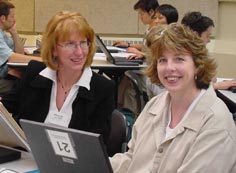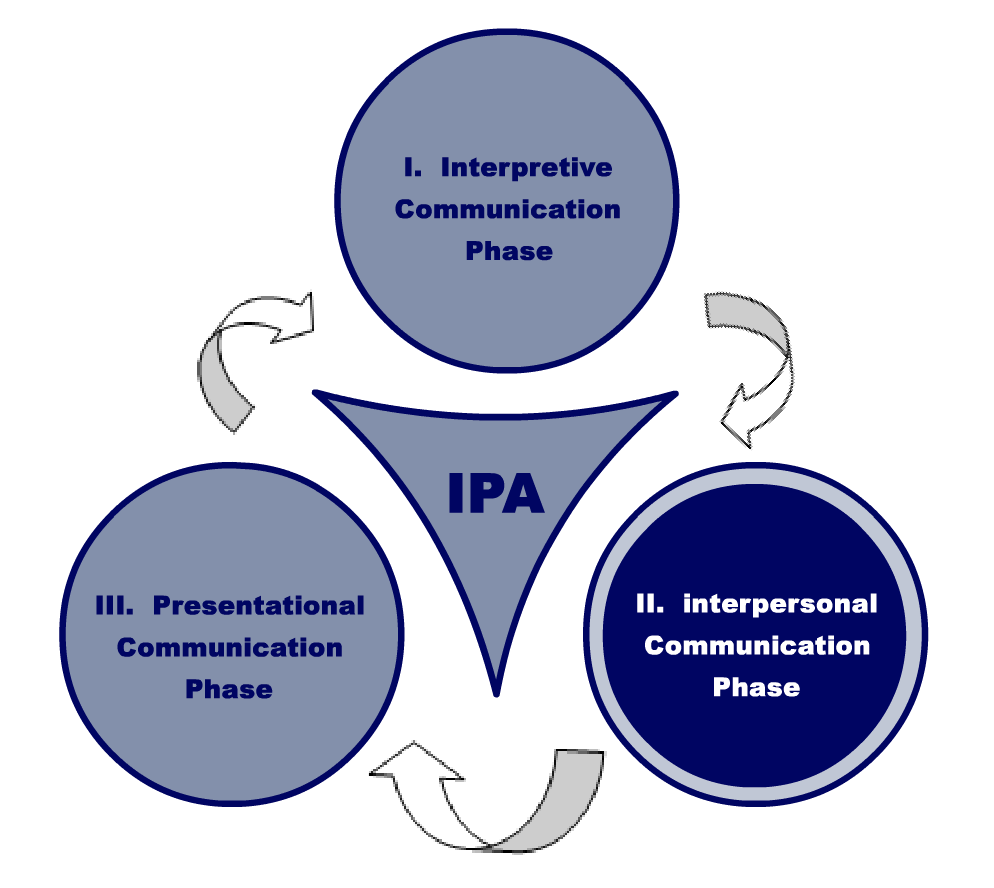 |
|
||||

|
Example 5: The European Union by Pam Wesely Phase 3: Interpersonal Task Materials needed:
Description of the task: Since Interpersonal Tasks are so difficult to carry out with novice learners, this part of the assessment will take two days and perhaps three. The first day will include the general explanation and rehearsal of the task. Rehearsal is important in that it puts students in contact with the language and requires them to think through the material in an active way (Cohen, 1994, p. 277). I will explain the Interpersonal Task in English, although all accompanying handouts will be in French. Again, it is very important that students understand what they will be doing, and at this level, the only efficient way for them to understand complex tasks is if I explain them in English. I will explain the project orally to the students, and I will write the main ideas on the board in order to provide them with a visual aid. The first part of the task explanation is as follows:
This first part maintains the theme of the assignment, reflecting the single theme and content area (Glisan et al., 2003, p. 17). However, since Interpersonal Tasks at the novice level can be extremely challenging for learners, I need to scaffold this task beyond the theme through providing an opportunity to rehearse, something which would not happen in the world. I wish that I could maintain authenticity within the illusion of the Congrès, but ultimately, the illusion is not as important as providing a task that appropriately assesses the students. At this point, I will probably acknowledge this shift to my students and continue:
I will hand back the notes that students have taken on the presentations at this point. This, of course, reflects a key concept of the IPA: "the tasks…are interrelated and build upon one another" (2003, p. 17). The students will make use of the knowledge they have acquired and noted during the Presentational Task to help them complete the Interpersonal Task. I expect that the students will struggle in starting this activity, but since we have played 20 questions before, they will probably figure it out quickly. This familiarity with the task will help students avoid procedural anxiety, and they will be able to focus on the language production that I desire. Furthermore, students are very familiar with learner-learner interviews in my classroom, indeed, much more so than they are with teacher-learner interviews. Therefore, I have already made discussions "a regular part of the teaching programme," so they are comfortable with this means of assessing their spoken language (Underhill, 1987, p. 50). After the students have practiced with a partner, we will have a class discussion about the best ways to ask questions in this format. Again, in reviewing the practice, I will emphasize the importance of the correct use of question words and the need to logically order your questions from general to specific. I will also emphasize the importance of demonstrating as the questioner that you understand what your partner has said by not repeating similar questions or ignoring responses. We might brainstorm a few good questions together, although I would not write them on the board or have students write them down, since that might overemphasize reading in what should be a spoken activity. In this part of the Interpersonal Task, I am seeking to start the first two steps in the IPA's feedback loop: modeling and practice (Glisan et al., 2003, p. 11). On the second day of class, I will explain the logistics of the task. My explanation, again oral and in English, will include the following:
Free reading is a staple in my novice classes. In this, students take French magazines, comics, and books from our class library and read them independently or in small groups. I have a worksheet to direct their reading (see Appendix E), and I have pre-selected some texts about other countries in the European Union. The students are familiar with my expectations for their behavior and effort in free reading, so I believe it is a good task for them to do while they are waiting. After this explanation, I will distribute the rubric quickly (Appendix F) and show them that they are primarily graded when they are the questioner, but that a non-negotiable is that they cooperate constructively when they are the responder. Additionally, they will see that there are two separate rubrics for the two times that they complete this task. They will see that the elements that I already pointed out (use of question words, ordering and sequencing of questions) are vital elements to how they will be assessed. Letting them see the rubric ahead of time, as with the Presentational Task, allows them to understand the importance of their role and that of the assessment (Glisan et al., 2003, p. 27). Since I hope to have students complete the Interpersonal Task more than once, I will try to give some feedback to each questioner after their first turn. Because the task is relatively simple, this should not be too difficult to do quickly and verbally. Additionally, I can ask them how they feel that they did, as such trying to create a spirit of joint problem-solving (Glisan et al., 2003, p. 14). This would provide a mini-feedback loop in order to help them to learn and perform better the second time that they are the questioner. I will, of course, have to be very sensitive to the students' anxiety levels, and I will not complete the rubric as they perform. Our feedback conversation will be more informal. This final task, I feel, will provide the students with a nice feeling of accomplishment, and a definite mastery of the content material.
Navigation: Follow the IPA process or go directly to the section that is of most interest to you by clicking on the appropriate category
|
||||
